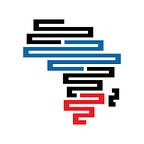Changing data journalism in Nigeria, one training at a time
A collaboration between newsrooms and government is teaching journalists how to use data for storytelling.
By Andie Okon and Nkechi Coker
As winners of the Brown Institute United Nations DESA collaboration contest, Code for Africa (CfA), the News Agency of Nigeria (NAN) and the Nigerian National Bureau of Statistics (NBS) hosted its first in a series of training workshops.
The workshops, themed ‘Using Official Statistics for Storytelling in Nigeria’, took place at the NAN offices in Abuja and Lagos in August 2019, with the goal of creating a substantive newswire of data-driven analytical news. Thirty-three journalists were trained in Abuja and 25 in Lagos. We also extended the training to our journalism community, Hacks/Hackers, and trained a total of 72 participants across three cities.
This partnership came together after months of training in newsrooms with CfA’s Academy, and a realisation that journalists had a specific need to understand and analyse statistical datasets for their stories.
- Read more about award here
Together with the NBS — Nigeria’s largest repository of data and statistics — CfA developed a robust curriculum intended to update the skills of NAN journalists, which focuses on teaching journalists how to use data to tell and illustrate stories for wider engagement.
The decision to focus on NAN journalists was simple: it’s the largest news wire in Nigeria and the one that other newsrooms rely on for content and information to support their own storytelling.
NAN acting Managing Director Ibrahim Mammanga said about the training: “The most important part of the training to me was how to find relevant data from the NBS website. For me, that was a huge achievement from the training session.”
Mammanga said the training improves the agency’s ability to interpret statistics and data for better understanding of important and trending issues in the country.
“Data training is important for journalists on every beat from finance to health, agriculture, sports and other sectors. The fact remains that people do not have the patience to read long stories anymore,” he said.
“People want facts given to them in the shortest way possible and data visualisation summarises stories in a graphic form, making it more interesting for people to read, and that is the area I want NAN reporters to explore,” he said.
Participants went back to basics at the training. The NBS taught a session on basic terminology they use when gathering statistics. The need for this was soon appreciated as some journalists had different definitions for the term ‘household’, for example.
Lucky Ogidan, a data analyst and trainer from the NBS, said the goal of this training is to make the NBS portal accessible and allow journalists to understand the data as well as apply it in stories.
“Journalists need to use more data and statistics in telling their stories, because data is used to identify societal problems that need attention in the country,”
“One of our goals is to turn data into information and information into insight. We serve the government, the economy and the public with data about the socioeconomic, demographic and environmental situations,” he said.
At the training a number of tools were demonstrated, including CfA’s HURUmap. Nigeria’s instance for this tool is a collaboration between the NBS and CFA to offer a source for regional data.
HURUmap gives one access to play around with the data in various readymade forms. You can embed it to your website page or download it in its raw format. You can also map the data, tabularise it and compare one item with another.
The success of this session was measured by the enthusiastic request for more intensive training on this and other tools, in order to visualise the data retrieved from the NBS portal.
Code for Africa’s Academy in Nigeria has been active for just over two years in newsrooms and tertiary institutions in Lagos, Benin City and Abuja. We have a community of 1400+ journalists, the Hacks/Hackers community, who are utilising our Academy tools to develop their data journalism skills. You can sign up to join our Academy at academy.africa
The National Bureau of Statistics is the authoritative source and custodian of official statistics in Nigeria, and coordinates statistical operations of the National Statistical System comprising all Federal Ministries, Departments and Agencies (MDAs), State Statistical Agencies (SSAs) and a number of other data providers.
The News Agency of Nigeria is the primary news content provider for Nigeria’s newspapers, electronic media and bloggers. With the introduction of satellite technology in 1998, its subscribers now are able to use their news portal to pick the news they want and with 501 editorial staff nationwide and a correspondent in New York, NAN is always where the news is and produce more than 200 stories per day, with additional collaboration with Reuters and Xinhua News agencies.
Code for Africa (CfA) is the continent’s largest federation of indigenous civic technology and open data laboratories with CfA labs in Kenya, Nigeria, South Africa, Tanzania and Uganda and a further five affiliate labs in Cameroon, Ethiopia, Ghana, Morocco and Sierra Leone and funded projects in a further 12 countries. CfA manages the $1m/year innovateAFRICA.fund and $500,000/year impactAFRICA.fund, as well as key digital democracy resources such as the openAFRICA.net data portal and the GotToVote.cc election toolkit. CfA primarily supports grassroots citizen organisations and the media to help liberate data and empower citizens, but also works with progressive government agencies to improve digital service delivery.
In addition to funding and technology support, CfA’s labs incubate a series of trendsetting initiatives including the PesaCheck fact-checking initiative in East Africa, the continental africanDRONE network, and the African Network of Centres for Investigative Reporting (ANCIR) that spearheaded Panama Papers probes across the continent. CfA is an initiative of the International Center for Journalists (ICFJ).
